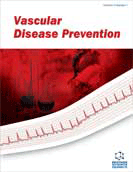Abstract
In addition to increasing the risk of diabetes, the metabolic syndrome increases the risk for cardiovascular disease and stroke. For the atherogenic dyslipidemia associated with the metabolic syndrome, the primary aims for therapy is to lower triglycerides, raise High Density Lipoprotein (HDL)-cholesterol, and reduce Low Density Lipoprotein (LDL)-cholesterol. The Scandinavian Simvastatin Survival Study and Cholesterol and Recurrent Events trials showed that reducing LDL-cholesterol with a statin decreased total and cardiovascular mortality in patients with coronary artery disease. In these trials, similar benefits were obtained with the metabolic syndrome subgroup as for the groups as a whole. Part of the Prevention of Renal and Vascular Endstage Disease Intervention Trial (PREVEND IT) involved pravastatin 40 mg in patients with persistent microalbuminuria, and in the metabolic syndrome subgroup, pravastatin lowered the incidence of major adverse cardiac events. The Myocardial Ischemia Reduction with Aggressive Cholesterol Lowering (MIRACL) study was in patients admitted to hospital with unstable angina or non-Q-wave acute myocardial infarction, and showed that intensive lipid lowering with atorvastatin reduced ischemic events, and this was similar in patients with and without the metabolic syndrome. The Bezafibrate Infarction Prevention (BIP) study enrolled patients with a previous myocardial infarction or stable angina to bezafibrate, to increase HDL-cholesterol while lowering triglycerides, and in the subjects with the metabolic syndrome, bezafibrate reduced the incidence of new myocardial infarction. Nicotinic acid is more potent than fibrates in raising the levels of HDL-cholesterol and lowering LDL-cholesterol, but slightly less potent than fibrates in reducing triglycerides. In the Coronary Drug Project of patients with coronary artery disease, nicotinic acid/niacin decreased the occurrence of myocardial infarction and mortality similarly in subjects with and without the metabolic syndrome. The combination of a statin and fibrate/niacin is probably beneficial in the metabolic syndrome, but this is yet to be clearly demonstrated in clinical trial.
Keywords: atorvastatin, bezafibrate, coronary artery disease, ezetimibe, fenofibrate, fluvastatin, gemfibrozil, nicotinic acid, metabolic syndrome, orlista


